Iran Downplays Hacking Of Foreign Ministry Servers As Media Exaggeration
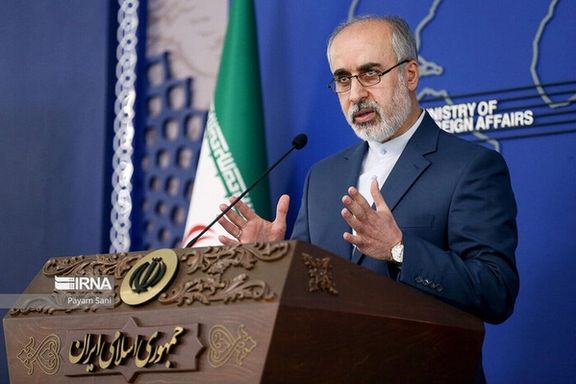
Iran’s foreign ministry spokesman confirmed the hacking attack on the ministry's website on Sunday but claimed reports had been exaggerated.

Iran’s foreign ministry spokesman confirmed the hacking attack on the ministry's website on Sunday but claimed reports had been exaggerated.
Nasser Kanaani confirmed the incident but called the reports about access to documents, databases, and servers of the ministry of foreign affairs "media exaggeration".
Playing down the incident which disabled 210 sites and online services and led to a large batch of documents being leaked, he said: ”All the service systems of the ministry are active and being used. Only the public relations website of the ministry was attacked by a hacker. The necessary measures were taken immediately, and it is now available to the public."
The hacktivist group ‘Uprising till Overthrow', affiliated with the Albania-based opposition Mujahideen-e Khalq (MEK) group, claimed responsibility for the cyber attack. Hundreds of identification documents, minutes of meetings, ministry correspondences, phone numbers of ministry officials, and the names of 11,000 employees of the foreign ministry, were among reams of information made public.
According to the telegram channel of the hackers, all sites related to the ministry such as the Islamic Republic’s embassies, and affiliated organizations were targeted, showing a landing page with photos of the leaders of MEK as well as photos of Iran’s Supreme Leader Ali Khamenei and President Raisi with red crosses over them.
The ‘Uprising Till Overthrow' had already hacked and deactivated several regime websites and services. In June 2022, it hacked over 5,000 security cameras of state bodies and 150 websites belonging to Tehran Municipality.

Driven by economic and professional problems, as well as lack of social and political freedoms, an increasing number of Iran's healthcare professionals emigrate.
Thousands of physicians, dentists, midwives, and nurses have either emigrated in the past few years or are planning to leave for other countries.
Many in Iran, including lawmakers, have repeatedly warned that the ever-increasing desire of healthcare professionals to leave will result in the deterioration of the country’s healthcare system.
Government officials, however, refuse to acknowledge the problem. In an interview with the official news agency IRNA in November, health minister Bahram Eynollahi claimed that concerns over emigration of healthcare professionals were fabricated by the media.
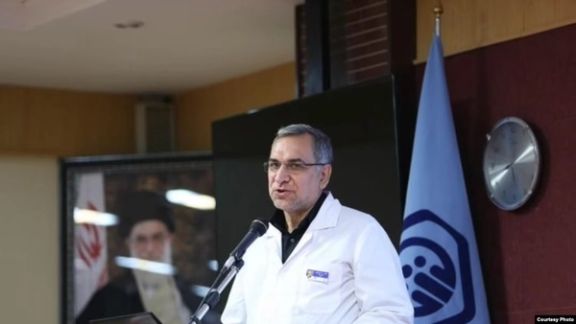
An official of the Medical Council of the Islamic Republic of Iran (IRIMC), Mansour Jafari-Namin, said Sunday the government and parliament must prevent the exodus of the “nation’s wealth” by providing suitable and secure jobs, as well as good income for medical professionals.
Speaking at a ceremony in Ardabil to honor the international Midwives Day (May 5), Jafari-Namin said over 800 midwives have emigrated in the past Iranian year only (March 2022-March 2023).
IRIMC is a non-governmental licensing and regulatory body and a recognized trade union for Iranian medical doctors with nearly 300,000 registered members who elect the president of the council.
There are no transparent data on the emigration of healthcare and other professionals, but medical officials and lawmakers often offer fragmentary information on the scope of the problem.
In February, Mohammad Sharifi-Moghadam, a member of the central council of Iran's Nurses’ Organization, said between 2,500 to 3,000 nurses were emigrating from Iran each year, based on the number of requests for good standing certificates, confirming that the applicant is entitled to practice medicine in the country.
“Even this number is not accurate,” Sharifi-Moghadam said, explaining that some people may take other routes for emigrating which do not require good standing certificates. He attributed nurses’ wish to leave for work in other countries to their income level which is much lower in Iran, due to the devaluation of the national currency inflation currently more than 50 percent.
According to Sharifi-Moghadam, the most popular destinations of emigrating nurses were Germany, the United States, Australia and Canada.
A member of the parliament’s health committee, Yahya Ebrahimi, said in December that a big percentage of doctors were going to Persian Gulf Arab countries. Oman, particularly, has become a very popular destination for doctors in recent years.
Like IRIMC, Nurses organization is a licensing and regulatory body and a recognized trade union.
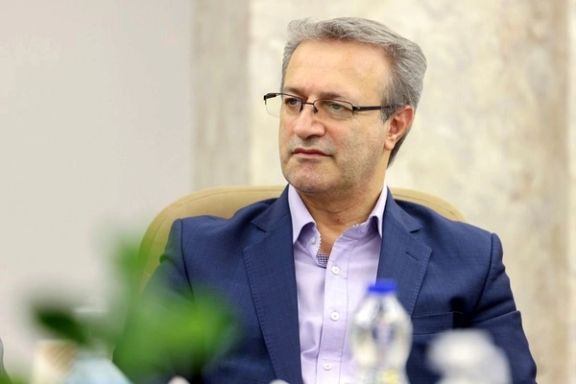
In April 2022 an IRIMC official had also warned that around 4,000 doctors from different age groups had applied for certificates of good standing within the previous year to emigrate, up from around 600 in the years between 2013 and 2015.
Mohammad-Ali Mohseni-Bandpey, a member of the parliament’s health committee, in January said wrong government policies affecting doctors included refusing to allow them to raise their fees despite higher cost of living and maintaining a practice.
Physicians and other health professionals’ maximum fees as well as private hospitals’ tariffs are set and announced by the government annually.
A survey by Iran Migration Observatory in 2022 found that economic and social instability, institutionalized corruption, and the regime’s governance methods were responsible for the very high desire to emigrate among medical students, professors and other healthcare professional. The report warned that those who failed to emigrate were in danger of losing their motivation for work.
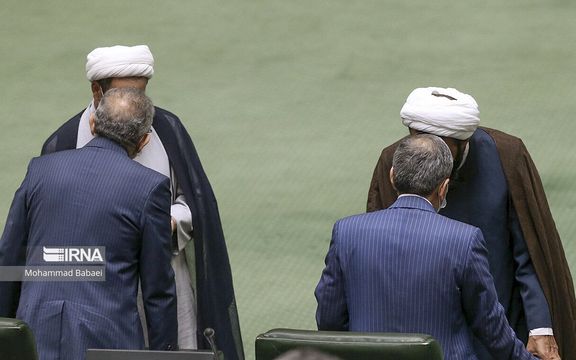
A recent scandal about Iranian lawmakers receiving SUVs from the industry minister to refrain from his impeachment has expanded to engulf top government officials.
An investigative committee in the parliament announced Saturday there is evidence that presidential administration officials and their family members also received cars, “outside legal procedures.”
Importing cars has been mostly banned by the government in recent years and domestic production is limited, making personal vehicles a sought-after commodity. Obtaining domestically produced vehicles is hard and there are long waiting lists that boosts their price among buyers.
In late April, a scandal broke out when a lawmaker revealed that around 70 members of parliament had received SUVs from former industry minister Reza Fatemi Amin last year, when parliament was examining a motion to impeach him for the country’s economic crisis.
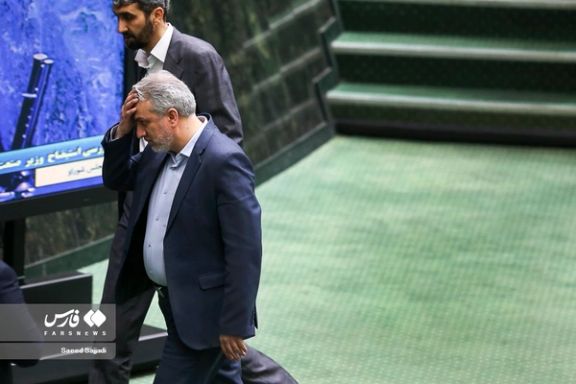
After initial denials by the minister and other officials, he was eventually impeached April 30 as the scandal raised a media frenzy and a wave of criticism even by regime insiders.
The scandal has badly hurt the already frail legitimacy of the parliament packed with hardliners elected with little competition. It also came on the heels of unprecedented anti-regime protests and just proved the arguments of opponents who say the Islamic Republic is lawless and undemocratic.
The political pressure generated by growing popular resentment and protests have opened a rift among hardliners who just a few months ago were representing one united front of Khamenei loyalists.
When the SUV scandal broke, some in parliament threatened other hardliners in the government that it would be easy to reveal the same corrupt practices in the presidential administration and at government ministries. Now, they are revealing information about ‘car trading’ in the executive branch as a modern euphemism for ‘horse trading.’
Lawmaker Ehsan Arkani, who heads a committee supervising the presidential administration told local media Saturday that the parliament has evidence of officials receiving vehicles for one of the government-controlled car companies that also produces SUVs.
“A special sales package was designed by this carmaker for people whose names were submitted by various ministries, and we have these names,” Arkani claimed, although so far no names have been made public in the scandal.
Lawmakers accuse their peers of receiving ‘car bribes’ and now executive branch officials are accused of conspiring to do the same, while none of the parties has released any names in the political tug of war.
However, more than 200 members of parliament have sent text messages to the public saying they were never involved in the scheme and did not receive a car.
Parliamentary elections will take place next March and political observers say the current parliament has little to show after three years in office, amid a serious economic crisis.
The national currency has lost half its value since September and annual inflation is believed to be above 50 percent. People are struggling even to buy basic food items, and politicians are mudslinging over new cars.
While President Ebrahim Raisi’s special inspector for the executive branch, Hassan Darvishian, alleged recently that lawmakers had received more than 100 cars illegally, Arkani hit back, saying Mr. Darvishian’s job is to keep an eye on executive branch officials and entities, not to inspect the parliament.
“It is better if Mr. Darvishian issued a report about vehicles given to people in the presidential administration’, and if he is not willing to do that, parliament would be happy to oblige, Arkanian said.
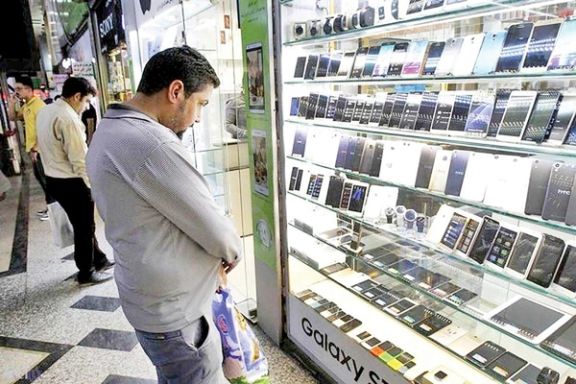
Imported second-hand iPhones are selling for more than 2,000 US dollars in Iran, an Iranian official has admitted.
The price of the devices – brought in from UAE – is due to an import ban on the iPhone 14 and production having stopped on the iPhone 13, according to Hossein Rouzbeh, a director of the Cell Phone Importers Association.
In January, Iranian media reported that the Islamic Republic spent $9 billion in foreign currency to import mobile phones over 33 months, with a large slice going on Apple devices.
According to Tasnim news agency, about $2.3 billion was spent on importing just two million “luxury” phones – mainly from US brand Apple. This is less than five percent of the total number of phones bought by Iranians.
The rial’s plunge against the US dollar in recent months has exacerbated chaos in several of Iran's major markets and brought many businesses to near standstill.
The price of mobile phones rose sharply with many retailers preferring to hold on to their stock in anticipation of a further fall of the rial.
In a letter addressed to the Islamic Republic of Iran Customs Administration (IRICA), Iran's Ministry of Industry banned the import of Apple's iPhone 14 and higher models from February 20, 2023.
"iPhone 14 and higher model mobile phones will no longer be registered in Iran and related instructions will be announced at the crossing points of the country,” said the letter.
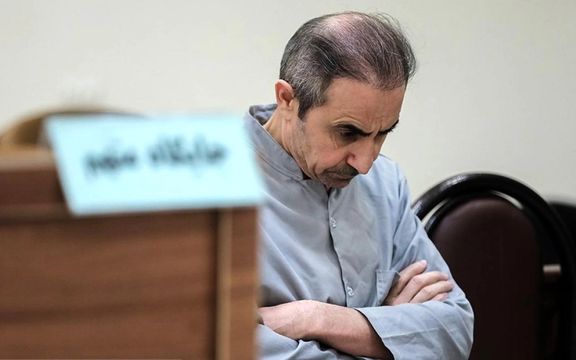
Iran’s execution of a political activist has sparked global outrage amid fears of further deaths in Tehran’s killing spree.
Habib Chaab, 49, former leader of the Arab Struggle Movement for the Liberation of Ahwaz (ASMLA), was hanged on Saturday morning, weeks after his sentence for “corruption on earth” was confirmed by the judiciary.
The Swedish-Iranian dual national was tried by a revolutionary court in Tehran in December. Denied his own choice of defense attorney, he was represented by a court-appointed lawyer. He had been forced to make self-incriminating confessions.
On Sunday, UK Foreign Secretary James Cleverly said he was “appalled”, adding: “The UK strongly opposes the death penalty. We call on the regime to stop all executions, now.”
On Saturday, the European Union had condemned “in the strongest terms” the execution of Chaab, reiterating strong opposition against the application of capital punishment in any circumstance, adding: “The European Union calls on Iran to refrain from any future executions and to pursue a consistent policy towards the abolition of capital punishment.
"The increasing number of EU and dual EU-Iranian nationals arbitrarily detained in Iran, the restrictions imposed on consular access to EU nationals, the denial of consular protection and the right to a fair trial, stand in direct violation of international law.”
Several European officials, including Swedish Foreign Minister Tobias Billström and Finnish Foreign Minister Pekka Haavisto, condemned the execution. However, they mainly focused on the irreversibility of capital punishment, rather than highlighting how the Islamic Republic is using it to crush dissent.
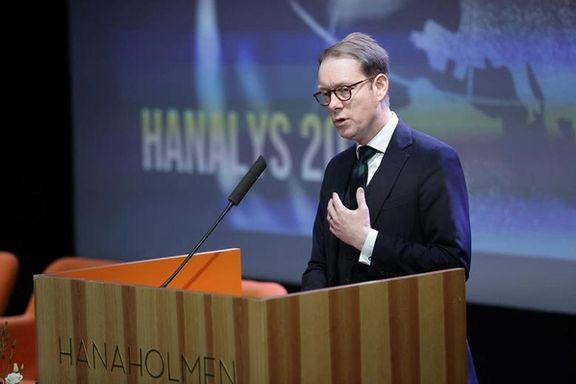
The Swedish Foreign Ministry summoned Iran’s deputy ambassador to Stockholm over the hanging.
The Islamic Republic authorities say Chaab was found guilty of leading ASMLA (Harakat al-Nidal in Arabic), a movement which advocates the separation of southwestern Khuzestan Province and for plotting "numerous bombings and terrorist operations" in the oil-rich province with a large Arabic speaking population.
Tehran classifies the ASMLA as a ‘terrorist’ organization responsible for acts of terror including an attack on a military parade in Ahvaz on September 22, 2018, which killed 25 military and civilians. ASMLA claimed responsibility for the bombing.
Iran's relations with Sweden have been strained since July 2022 when a Swedish court sentenced a former Iranian jailor, Hamid Nouri, to life imprisonment over executions of political prisoners in 1988.
This weekend it emerged that three Iranian Arab prisoners who have been sentenced to death have now been moved to an unknown location, prompting fears that their execution is imminent.
In February, the Ahvaz Revolutionary Court sentenced them to death along with three other prisoners on charges of "transferring currency and remittances through a foreign bank, armed attacks, and being associated with a political movement."
Norway-based monitoring group the Iran Human Rights Organization (IHR) said on Saturday that the Islamic Republic has carried out at least 42 executions in the past 10 days alone, or one person every six hours. At least 194 people have been executed in 2023 in Iran.
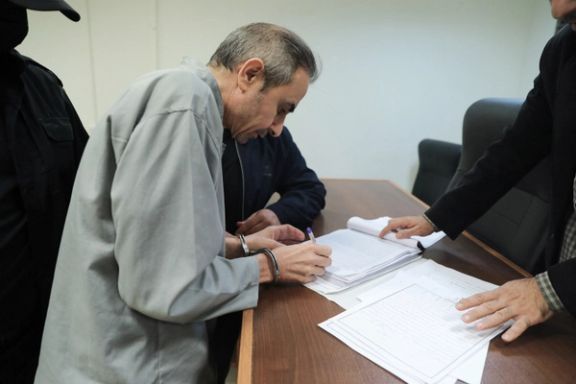
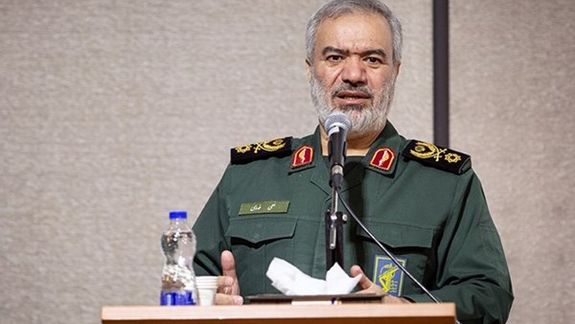
The deputy commander of Iran’s Revolutionary Guard (IRGC) has issued a veiled warning to the US Navy days after it seized an Iranian oil tanker.
Ali Fadavi said if America and its allies pose a threat to Iranian vessels the Islamic Republic will be hard on them.
Speaking on Sunday, he said that “all the enemies admit that the power of the Islamic Revolution has defeated them, and they do not dare to pose a threat when Iran is concerned.”
His comments come as sources told Reuters last week that the US confiscated an Iranian oil tanker at sea in a sanctions enforcement operation.
Iran seized another oil-laden tanker in retaliation on Thursday, at least five days after the US Navy seizure, according to maritime security firm Ambrey.
Well-placed sources who declined to be identified due to the sensitivity of the matter said Washington took control of the oil cargo aboard the Marshall Islands tanker Suez Rajan after securing an earlier court order. The tanker's last reported position was near southern Africa on April 22, ship tracking data showed.
The US Navy said Iran seized a Marshall Islands-flagged tanker in the Gulf of Oman on April 27.
In the latest escalation in a series of attacks on commercial vessels since 2019, Iran seized a second oil tanker on Wednesday in Persian Gulf waters.
However, TankersTrackers.com said the seizure of the Panama-flagged vessel Niovi was “ entirely staged”, “given the tanker’s history of receiving Iranian oil during the sanctions era as well as being currently empty of cargo”.
In 2020, Washington confiscated four cargoes of Iranian fuel aboard foreign ships that were bound for Venezuela and transferred them with the help of undisclosed foreign partners onto two other ships which then sailed to the US.